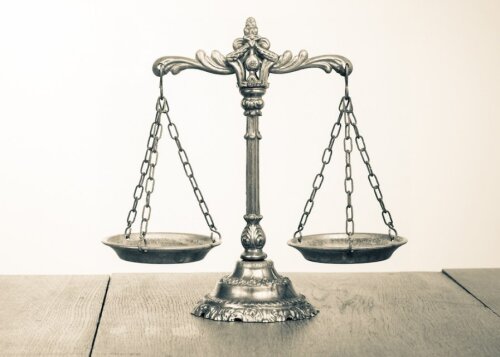Best Drug Crime Lawyers in Perm
Share your needs with us, get contacted by law firms.
Free. Takes 2 min.
List of the best lawyers in Perm, Russia
About Drug Crime Law in Perm, Russia
Drug-crime matters in Perm, Russia, are governed primarily by federal law - criminal and administrative codes apply across the country - and are enforced locally by police, investigators and the regional prosecutor's office. Offences range from minor administrative violations - for example, simple possession of very small amounts that may not be treated as a crime - to serious criminal charges like manufacture, trafficking, distribution or running an organized group. Penalties vary widely depending on the substance, the amount, the alleged intent to sell, and any aggravating factors such as involvement of minors or organized crime.
Because criminal procedure is federal, Perm-specific differences are mostly practical - which investigative units handle the case, which forensic laboratories are used, and how regional courts and prosecutors apply sentencing guidelines. Still, local legal practice and prosecutorial priorities can affect how aggressively a case is pursued and what defenses are effective.
Why You May Need a Lawyer
Drug-crime cases frequently involve immediate and consequential steps by law enforcement - searches, seizures, arrests, forensic testing and criminal charges. A lawyer can help at every stage:
- During arrests or detentions to protect your rights and avoid self-incrimination.
- When police seek to search your home, vehicle or phone - to challenge unlawful searches and preserve evidence.
- To obtain independent or repeat forensic analysis of seized substances and to check chain of custody.
- To build a defense strategy - for example, by contesting evidence, showing lack of intent to sell, proving absence of knowledge, or establishing unlawful planting of evidence.
- At court hearings, to negotiate conditional sentences, reduced charges or alternative measures such as treatment, and to prepare appeals.
If you cannot afford a lawyer, you are entitled to a state-appointed defender in criminal proceedings - but you may prefer a private specialist with experience in drug cases and local courts.
Local Laws Overview
Key legal features to know in Perm:
- Federal classification - Drug offences are classified as either administrative or criminal under Russian federal law. Administrative cases usually involve very small amounts or first-time low-level violations and result in fines, administrative detention or referral to treatment. Criminal cases cover possession above a certain threshold, production, distribution, trafficking, organized activity, and related offences.
- Elements prosecutors must prove - For criminal charges, prosecutors must prove the substance was a controlled drug or psychotropic agent, the amount, and the accused's possession or intent. Expert toxicology tests and documented chain of custody for seized material are central to proof.
- Aggravating factors - Possession in large quantities, sale or distribution, involvement of an organized group, selling to minors, commission of other crimes, or use of weapons increase penalties and likelihood of pre-trial detention.
- Procedural steps - After detention or charge, suspects can be held briefly for investigation and then either released, placed under restraining measures or remanded in custody by court order. Investigations include searches, witness interviews and forensic tests. Pre-trial detention decisions are made by a judge and can be extended.
- Evidence - Forensic analysis (toxicology), CCTV, phone data, witness statements, financial records and testimony are commonly used. Challenging poor or improperly handled expert reports is a common defense tactic.
- Penalties and outcomes - Punishments range from fines and community-type sentences to lengthy imprisonment for serious trafficking. Courts may also order compulsory treatment or rehabilitation in appropriate cases. Sentencing reflects the scale of the offence and statutory ranges set by federal law.
Frequently Asked Questions
What is the difference between an administrative and a criminal drug offence?
Administrative offences are minor violations subject to administrative penalties - fines, administrative detention or mandatory treatment - and do not carry criminal records in the same way. Criminal offences are more serious: they involve larger quantities, intent to distribute, organized activity or other aggravating factors and can lead to criminal prosecution, a criminal record and prison sentences.
What should I do if police come to search my home or vehicle?
Stay calm and ask to see a search warrant. If you are shown a warrant, note the names and positions of officers and what areas are searched. Do not resist physically. You have the right to remain silent and to speak with a lawyer before answering questions. If officers search without a warrant, tell them you do not consent and note the time and names. Later, a lawyer can challenge an unlawful search in court.
Can I be detained immediately after an arrest? How long can I be held?
Yes, law enforcement can detain you for an initial period for questioning and investigation. Short-term detention without a court decision is permitted for a limited time while investigators take procedural steps. To continue holding you longer, authorities must apply to a court, which may order remand in custody or alternative restrictions. The timing and exact limits depend on procedural rules; the first 24-48 hours are particularly important for arranging a lawyer and asserting rights.
What rights do I have during interrogation?
You have the right to be informed of the charges or suspicion against you, the right to remain silent, the right to legal counsel from the start of questioning, and the right to request medical attention if needed. Any statement given under duress is not admissible. Insist on having a lawyer present and avoid giving detailed explanations or admissions without counsel.
How is the type and quantity of the substance determined?
Authorities rely on forensic toxicology and chemical analysis to identify substances and measure amounts. These tests are performed by accredited laboratories. The reported substance type and measured quantity are used to assess whether the amount meets thresholds for criminal prosecution or an administrative case. You or your lawyer can request independent testing or challenge the forensic methods and chain of custody in court.
What defenses are commonly used in drug cases?
Common defenses include denying knowledge or possession, arguing drugs were planted or belonged to someone else, challenging the legality of searches and seizures, questioning the forensic analysis or chain of custody, and demonstrating lack of intent to sell. Each case requires fact-specific analysis and evidence-gathering.
Can I be charged if someone else stores drugs at my place without my knowledge?
It is possible for authorities to charge the resident, but lack of knowledge is a legitimate defense. Evidence about access, presence at the scene, fingerprints, CCTV, communications and witness testimony are important. If you were not aware, your lawyer will work to prove absence of knowledge and contest attribution of possession.
Is it possible to avoid prison - for example, by treatment or a plea bargain?
Depending on the offence and circumstances, alternatives to immediate imprisonment may be available - such as conditional sentences, fines, suspended sentences, or court-ordered treatment. Plea agreements or negotiated outcomes with prosecutors can sometimes reduce charges or sentences. A lawyer can assess eligibility and try to secure the most favorable resolution.
How long does a drug-crime case usually take?
There is no single timeline. Preliminary investigation, forensic tests and pre-trial procedures can take weeks to months. Trials and appeals extend the process further. Complex cases involving large seizures or organized groups often take much longer. Your lawyer can provide an estimate based on the stage and complexity of your case.
What if I cannot afford a private lawyer?
You have a right to a state-appointed defender in criminal proceedings. Public defenders handle many cases and provide essential representation. If possible, look for an experienced criminal-defense lawyer or legal aid organization with specific expertise in drug cases and local court practice. Some non-governmental organizations also offer free legal consultations or help finding counsel.
Additional Resources
When you need help in Perm consider these resources to start with:
- Regional prosecutor's office and local police department - to understand official charges and case status.
- Perm Krai advocate chamber or regional bar association - for lists of licensed defense lawyers and complaints about advocate conduct.
- State-appointed defender service - for assigned representation if you cannot pay for private counsel.
- Accredited forensic-toxicology laboratories and expert services - for independent analysis requests coordinated through your lawyer.
- Narcological dispensaries and medical services - if treatment for addiction is needed or if you want medical documentation to support a case for rehabilitation instead of punishment.
- Regional human rights commissioner or ombudsman - for complaints about procedural violations or unlawful actions by authorities.
- Legal aid centers and NGOs offering criminal-defense or social support services - for assistance with non-legal needs such as social services and rehabilitation.
- Emergency and police numbers for immediate assistance - use local emergency numbers if you are in danger or face immediate arrest.
Next Steps
If you or a loved one faces a drug-related investigation or charge in Perm, take these practical steps:
- Do not speak in detail with investigators without a lawyer. Politely invoke your right to legal counsel.
- Contact an experienced criminal-defense lawyer who handles drug cases - either privately or ask for a state-appointed defender. Confirm their license and experience with local courts.
- Keep records - names of officers, times, what was seized, copies of documents, and witness contacts. Ask for receipts for seized items.
- Request and preserve medical or other documents relevant to your case, and consider independent forensic testing if the identity or quantity of substances is disputed.
- If detained, insist on your rights - notification of family, access to a lawyer, and humane treatment. Your lawyer can apply to court for release or less restrictive measures when appropriate.
- Discuss all possible defenses and outcomes with your lawyer - including plea options, alternative measures like treatment, and appeals strategy.
Early legal help significantly improves outcomes in drug-crime matters. Seek counsel promptly, document everything carefully, and rely on qualified local professionals to guide you through the process.
Lawzana helps you find the best lawyers and law firms in Perm through a curated and pre-screened list of qualified legal professionals. Our platform offers rankings and detailed profiles of attorneys and law firms, allowing you to compare based on practice areas, including Drug Crime, experience, and client feedback.
Each profile includes a description of the firm's areas of practice, client reviews, team members and partners, year of establishment, spoken languages, office locations, contact information, social media presence, and any published articles or resources. Most firms on our platform speak English and are experienced in both local and international legal matters.
Get a quote from top-rated law firms in Perm, Russia — quickly, securely, and without unnecessary hassle.
Disclaimer:
The information provided on this page is for general informational purposes only and does not constitute legal advice. While we strive to ensure the accuracy and relevance of the content, legal information may change over time, and interpretations of the law can vary. You should always consult with a qualified legal professional for advice specific to your situation.
We disclaim all liability for actions taken or not taken based on the content of this page. If you believe any information is incorrect or outdated, please contact us, and we will review and update it where appropriate.










